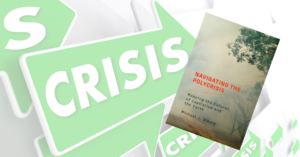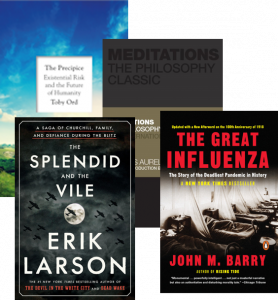Edward P. Morgan once wrote, “A book is the only place in which you can examine a fragile thought without breaking it, or explore an explosive idea without fear it will go off in your face. It is one of the few havens remaining where a man’s mind can get both provocation and privacy.” The question being asked nowadays is whether it makes a difference if a book is read digitally or the old-fashioned way off the printed page? Like it or not, the popularity of printed books is waning. There was a time when local bookstores and local libraries were magical places that held dreams, adventures, and romances waiting to be discovered. A bit of the romance was lost when mega-bookstores likes Barnes & Noble entered the picture making it difficult for local bookstores to compete. As a result, thousands of mom & pop bookstores went out of the business. Then it became possible to buy books on-line and read books electronically with gadgets like the Kindle, the Nook, and the iPad.
The impact of e-commerce, e-books, and e-readers has been enormous. “Faced with mounting threats from electronic books, online retailers and discounters, some bookstore owners may wonder if they’ve reached the final chapter. The nation’s largest bookstore chain, Barnes & Noble, put itself up for sale this month. And Amazon recently announced a milestone that might bode ill for brick-and-mortar bookstores: As of this summer, Amazon’s e-books are outselling its hardbacks.” [“Book sellers buck e-trend,” by David Kaplan, Houston Chronicle, 12 August 2010]. Another sign that ebooks are here to stay came when Dorchester Publishing Inc., one of the country’s oldest mass-paperback publishers, announced that it “is abandoning its traditional print books and making its titles available in digital format and print-on-demand only.” [“Publisher Switches to Digital,” by Jeffrey A. Trachtenberg, Wall Street Journal, 9 August 2010] Trachtenberg reports, however, that not all publishers are giving up on the printed page.
“Consumer-book publisher Bertelsmann AG’s Random House Inc. said it continues to be a strong believer in mass paperbacks. One of the country’s most successful mystery writers, the late John D. MacDonald, is available from Random House exclusively in mass paperback. ‘It’s still a viable, popular, lower-priced alternative to the other reading formats,’ said Stuart Applebaum, a spokesman for Random House. ‘It also has a committed readership. Will that commitment be forever in a transformative marketplace? We’ll have to wait and see.'”
According to L. Gordon Crovitz, “The final chapters in the history of the printed book have yet to be written.” [“From Gutenberg to Zoobert,” Wall Street Journal, 8 August 2010]. He writes:
“In the hit 1998 film ‘You’ve Got Mail,’ Meg Ryan’s independent bookstore couldn’t compete with the big chain-store competitor. Underdog-rooting moviegoers couldn’t have known how lucky the independent stores were, having enjoyed so many decades of being the only booksellers. The megastores, which became dominant in the 1980s, have been undermined by technology in less than a generation. Last week, Barnes & Noble, whose more than 700 stores make it the largest bricks-and-mortar book chain, put itself up for sale. Its market capitalization is less than $1 billion, compared with Amazon’s $55 billion. This reflects both the better economics of Web sales of print books and the increasingly uncertain future of print books in an e-book world. The creative destruction in the book business has led even Andy Ross to have some sympathy for Barnes & Noble. Mr. Ross was the owner of Cody’s Books, a well-known independent bookstore located near the Berkeley campus of the University of California. Starting in the 1980s, Mr. Ross instigated numerous antitrust and other lawsuits against Barnes & Noble. He owned Cody’s Books for some 30 years before competition from the big stores closed it down in 2008. ‘The only thing anyone is talking about in the book business is e-books,’ Mr. Ross told me last week. ‘I see it as being similar to the music industry. There is going to be a tipping point where e-books become the dominant medium, thus ending 500 years of the Gutenberg Age.'”
Of course books go back long before the age of Gutenberg and the printing revolution he started. Books were considered so important in ancient times that Alexander the Great built a library to house the recorded treasures he plundered as he tried to rule to world. That’s why I believe people are beginning to feel a sense of loss as they contemplate the end of the print era. Crovitz continues:
“Technology has made the physical scale of Barnes & Noble a liability. Amazon, now the world’s largest bookseller, launched the Kindle e-reader less than three years ago and already sells more Kindle editions than hardbacks. Amazon projects it will sell more Kindle books than paperbacks within a year. Apple’s iPad, launched just a few months ago, is already a big seller. Google plans its own eBook store. As in other industries, consumers benefit from technological tumult. They get lower prices, greater choice and one-click buying. Amazon can charge less for printed books because it doesn’t have retail outlets, inventory, returns, printing or shipping costs. Now, the iPad is pointing the way to a new kind of book. With color and Web access, e-books on the iPad are a new genre. These are called enhanced, multimedia or ‘transmedia’ versions of books, with video, audio and interactivity.”
There’s no denying that a person’s reading experience can be enhanced by transmedia versions of books. And perhaps, in this age of video games and MTV, they are necessary to attract young people. I have been concerned that the arrival of e-books would eliminate the age-old tradition of parents reading books to their toddlers. Crovitz, however, indicates that he uses his iPad with his young children. He explains:
“In my family, which includes two young boys, the most popular iPad application is Zoobert, a narrated, interactive cartoon about a happy monster who lives in a sock drawer. Kids are instructed to ‘shake shake shake’ the iPad to help Zoobert decide what to do next. The iPad version of the Dr. Seuss classic ‘Green Eggs and Ham’ includes clever tools for spelling and reading.”
One area where ebooks do make sense to me is education. Textbooks are the most expensive books most people will ever buy and they are required at a time when people can least afford them. Anything that can help improve education and reduce costs makes sense. Scott G. McNealy, co-founder and former chief executive of Sun Microsystems, believes that some textbooks should be free [“$200 Textbook vs. Free. You Do the Math.” by Ashlee Vance, New York Times, 31 July 2010]. Vance reports:
“Mr. McNealy … shuns basic math textbooks as bloated monstrosities: their price keeps rising while the core information inside of them stays the same. … He has since [invested some of his wealth in] Curriki, an online hub for free textbooks and other course material that he spearheaded six years ago. ‘We are spending $8 billion to $15 billion per year on textbooks’ in the United States, Mr. McNealy says. ‘It seems to me we could put that all online for free.’ The nonprofit Curriki fits into an ever-expanding list of organizations that seek to bring the blunt force of Internet economics to bear on the education market. Even the traditional textbook publishers agree that the days of tweaking a few pages in a book just to sell a new edition are coming to an end.”
Not wanting to lose any of the lucrative textbook market, publishers are embedding interactive testing and built-in research links in their e-textbook offerings to make the more useful. Travel publishers also making their e-book offerings more interactive. Crovitz reports that digital age publishing is generating new challenges. He explains:
“To those of us who see the technology glass as half full, it’s important to note the costs. Lower sales of print books pressure publishers, which usually get lower profits on e-books. This could mean fewer opportunities for aspiring authors until new business models emerge. Just as technology undermined the economics of local newspapers with online alternatives to classified advertising and upended the music industry by de-bundling physical albums into digital songs, it will take time for book publishers and authors to find new revenues. … Still, Mr. Ross, [former owner of Cody’s Books mentioned earlier], now a literary agent, is optimistic. He points to ‘new competitive pressure among e-book companies to get better deals for authors.’ The multimedia e-book, he says, ‘means a lot of potential for creativity,’ changing what it means to be a book.”
One thing I’m pretty sure of is that the first edition of an e-book will never increase in value. I suspect that genuine book lovers will still want to buy and treasure signed first editions by their favorite authors. At the same time, the digital age is making classics available to millions of people around the world who might never had access to them otherwise (see my posts entitled Books Forever and The United Nations’ “Alexandrian Library”). In closing, Crovitz agrees with the Morgan quote with which I began this post. He writes:
“At a time when distracting digital technologies threaten to reduce people’s attention span, it may take an evolution in the art form of a book to retain our interest in long-form story telling. Books that combine text with other media could be more informative and perhaps lead to a new kind of literature. It’s ideas that count, not how they’re transmitted. Independent bookstores gave way to chains, which are fast giving way to Web-based retailers. At least for now, the printed book will live alongside the e-book. These are new pages in the history of the book, whose final chapters are yet to be written.”
Because e-readers don’t come cheap, it will be a while before e-books overwhelm the market in developing countries. In fact, analyst Michael Norris of the Rockville, Maryland, research firm Simba Information Co., believes it will be a long time before they even overwhelm the market in the United States. In an e-mail, he wrote, “It’s cockamamie to think a product like [an e-reader] is going to revolutionize the way most people read, (Americans use e-books at a rate) much, much slower than it looks.” [“E-reading: Revolution in the making or fading fad?” by Annie Huang, Washington Post, 20 August 2010]. Another recent story in the Washington Post, discusses the burgeoning English-language pulp fiction market in India [“English-language pulp fiction translates to success in India,” by Emily Wax, 16 August 2010]. Wax reports:
“The niche industry’s success is fueled by the expansion of India’s middle classes, who often read in English. To cater to them, a wave of 50,000-square-foot, air-conditioned English-language bookstores have opened in recent years, complete with cafes and children’s play areas. Traditionally, Indians have bought their reading matter from thousands of closet-size bookstores operating in markets across the country or from neighborhood book-wallahs — salesmen hawking bestsellers at street intersections. … The success of English-language publishing here reflects the prosperity of the domestic industry as a whole. Books are relatively inexpensive to produce in India, where labor costs are low and cheap recycled paper is widely used. And while many U.S. bookstores are losing business to online or digital alternatives, the Internet has reached only a small percentage of Indian homes. The result has been a new Indian book culture, far broader than the staid math and science textbooks, epic family novels and religious mythology that used to sustain the industry.”
Wax’s report underscores Crovitz’s conclusion that the final chapter of the Gutenberg age has yet to be written. Paul Sweeney once wrote, “You know you’ve read a good book when you turn the last page and feel a little as if you have lost a friend.” If we ever turn the final page of the Gutenberg age, I believe that we will also feel like we have lost a dear friend.




